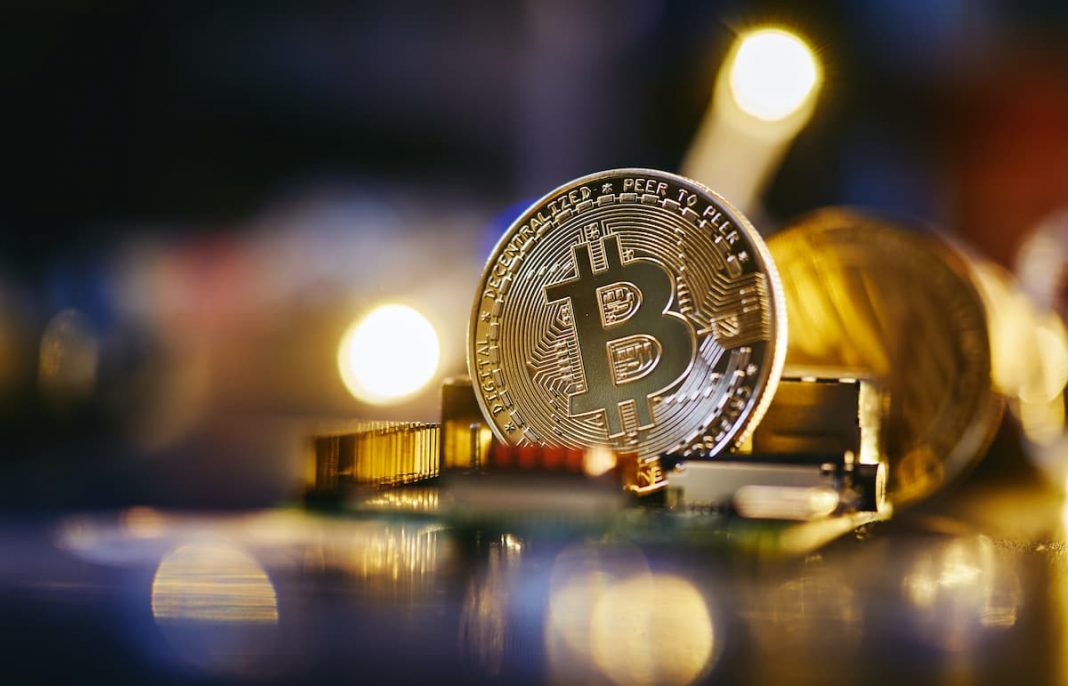In today’s cryptocurrency and bitcoin news, learn about that there will be new restrictions placed on Russians using European crypto services as a result of new sanctions discussed by EU member states in light of the current escalation of the war in Ukraine. The rumored crackdown follows a restriction on “high-value” crypto-asset services to Russian residents and companies earlier this year by the Union. Meanwhile, people acquainted with the situation say that Alex Mashinsky, creator of Celsius Network, withdrew $10 million from the crypto lender just weeks before the company closed customer accounts as it spiraled towards bankruptcy. On the other hand, after receiving formal approval as a financial service provider on September 10, Binance officially started its New Zealand crypto exchange on September 30.
Latest EU Sanctions to Limit Russians’ Crypto Access in Europe, Report Says
Original Source: Latest EU Sanctions to Restrict Russians’ Access to Crypto Services in Europe, Report Unveils
EU sanctions discussed amid the development of the Ukraine war will limit Russian access to European crypto services. Earlier this year, the EU restricted “high-value” crypto-asset services to Russian residents and companies.
EU may target Russian crypto services in new Ukraine sanctions
The EU is prepared to censure Russia for its decision to partially mobilize as part of its expanding military operations in Ukraine and plans to annex occupied Ukrainian territory through phony referendums.
Ursula von der Leyen, president of the European Commission, announced plans to block Russian imports and exports of technologies that could be used by the Russian military. A Russian oil price cap is intended.
The new regulations would also restrict Russians’ ability to transfer wealth using digital assets like bitcoins, according to Bloomberg. Brussels wants to restrict European firms from offering crypto wallet, account, or custody services to Russians, a report says.
A source who asked not to be recognized said jewelry and valuable stones are also on the list. It advises cracking down on persons who try to dodge sanctions, bans EU nationals from high-paying employment in Russian state-owned firms, and punishes individuals and institutions engaged in organizing recent referendums in Ukraine.
Sanctions on cryptocurrencies were adopted this spring, the fifth round agreed by the EU Council to close loopholes in the crypto market. At the time, the EU banned “high-value” crypto-asset services to Russia. The limit was €10,000 (currently $9,803).
Since Moscow launched a full-scale military invasion of Ukraine in late February, the EU has enacted various sanctions against the Russian Federation. To enforce each, all member states must agree.
Celsius Network Founder Pulled $10m Before Bankruptcy
Original Source: Celsius Network founder withdrew $10mn ahead of bankruptcy
According to people familiar with the matter, Celsius Network founder Alex Mashinsky withdrew $10mn weeks before the company froze customer accounts and headed for bankruptcy.
Mashinsky’s crypto withdrawals in May came as customers pulled their assets from Celsius in large numbers due to market turbulence and concerns about the company’s financial health.
Celsius suspended withdrawals on June 12, leaving regular investors unable to access their cash. In July, the company filed for bankruptcy with a $1.2 billion hole.
The business reached a peak last year with $25bn in crypto assets deposited by customers attracted by outsized interest rates Celsius offered, some as high as 18%.
The withdrawal revelations will intensify scrutiny of Mashinsky, who resigned as CEO on Tuesday, and raise questions about when he knew Celsius couldn’t return customer assets.
Celsius will disclose Mashinsky’s transactions in the coming days as part of a broader disclosure of its finances.
A spokesperson for Mashinsky said he and his family still had $44mn in crypto assets frozen with Celsius after the withdrawals, which he disclosed to the official unsecured creditors committee (UCC) in the bankruptcy proceedings.
Mr. Mashinsky withdrew a portion of his cryptocurrency in May 2022 to pay state and federal taxes. In the nine months before his withdrawal, he consistently deposited the same amount of cryptocurrency, the spokesperson said.
He’s committed to working with the community to maximize coin and liquidity for all, they said.
Mashinsky, 56, co-founded Celsius in 2017 and appeared in weekly YouTube videos to promote financial freedom from banks.
In late 2021, Celsius raised $600mn from US investment firm WestCap and Canada’s second-largest pension fund Caisse de dépôt et placement du Québec.
Despite Mashinsky’s public optimism, the company had weak internal systems for managing its assets and paid out more in interest to customers than it earned from lending.
In 2021 and 2022, Celsius suffered investment losses that contributed to its downfall but were not disclosed to customers. Vermont’s financial regulator said Celsius was insolvent on May 13 last year.
In May, the company saw huge asset outflows due to the collapse of terraUSD and Luna. Their demise began a sector-wide decline.
Use the share button at the top or side of articles to share. Copying articles to share violates FT.com’s Copyright Policy. [email protected] to buy more rights. Subscribers can gift 10 or 20 articles per month. Learn more at https://www.ft.com/tour. https://www.ft.com/content/5f7c9eab-ca5f-4425-91be-5781313c9723 Days before freezing withdrawals, Celsius assured customers it had adequate reserves and said “full speed ahead.”
Former telecoms entrepreneur Mashinsky may have to return $10m he withdrew from Celsius. Under US law, a company’s 90-day or one-year prior to bankruptcy payments can be clawed back for all creditors.
About $8mn of Mashinsky’s assets were used to pay Celsius income taxes, a source said.
The rest was Celsius’ CEL token. The withdrawal was planned and tied to Mashinsky’s estate planning, the source said.
Mashinsky was Celsius’ largest shareholder and is among its biggest creditors in bankruptcy. He apologized to customers in his resignation letter last week, saying he was “very sorry about the financial difficulties our community is facing.”
Binance Opens Crypto Exchange in New Zealand and More
Original Source: Fresh Off The Block: Binance launches crypto exchange in New Zealand and more
Binance opened its crypto exchange in New Zealand on Sept. 30, following its Sept. 10 registration as a financial service provider.
“New Zealand has one of the earliest and fastest uptakes of digital transactions in the world,” says Binance founder and CEO Chang Peng Zhao.
Zhao notes that many tech companies are slow to open a New Zealand office. “It’s easy to overlook because it’s a smaller market, but we see value in being there,” Zhao says.
Ben Rose, former COO of New Zealand software company CodeHQ, is Binance New Zealand’s general manager.
DFINITY Foundation, a Zurich-based non-profit developing the Internet Computer (IC), added HTTPS outcall functionality on Sept. 29. Smart contracts can now securely make HTTP calls from a blockchain sandbox, which allows multiple partners to work on the same cloud-hosted network, to external Web 2.0 services.
IC users can now access real-time Web 2.0 information like cryptocurrency exchange rates, weather data, sports scores, voting results, and stock prices. This paves the way for more secure and sophisticated blockchain services on the IC.
Singapore warns crypto firms to cool their enthusiasm
HTTPS outcalls will allow smart contracts to directly and securely retrieve data from the outside world, such as price feeds from exchanges, in a trustless manner. The functionality will also be used to integrate Internet Computer smart contract services with Web 2.0 and Web 3.0 external services, creating ecosystem opportunities.
At present, the IC blockchain enables systems and services to be built using smart contracts running on the blockchain, without traditional IT services.
On Sept. 28, global cryptocurrency exchange ByBit listed PUMLx, the utility token of PUML Better Health, a Web 3.0 move-to-earn platform for corporate wellness.
PUML Better Health is an app that motivates users to stay active with move-to-earn programs and connections to the fitness and wellness industry. Since then, it has partnered with LVMH, Deloitte, and Western Union to encourage users to stay fit and active.
The PUMLx token will be listed on Bybit’s Launchpad 2.0, the latest edition of the platform. One of its new features is a lottery model that allows users to stake Tether for token allocations.
Users can stake rewards, swap assets, and buy athlete NFTs on PUMLx.
Summary of today’s Bitcoin and Cryptocurrency news
In all, there have been various packages of sanctions enacted by the 27-member bloc against the Russian Federation since late February, when Moscow began a full-scale military invasion of neighboring Ukraine, which has been awarded the status of a candidate for EU membership. It takes the agreement of every nation-state to put any of these into effect.
Meanwhile, one of the people aware with the situation indicated that the money Mashinsky withdrew was intended to pay taxes that were due as a result of the income the assets produced on Celsius. CEL tokens, Celsius’s native cryptocurrency, accounted for the remaining $2 million. According to the source, Mashinsky’s estate planning was tied to the withdrawal. After declaring bankruptcy, Mashinsky claims to be one of Celsius’ largest creditors because he was the company’s largest shareholder. In his resignation letter to employees and clients this week, he expressed regret for the “tough financial conditions members of our community are enduring.”
Finally, PUMLx, the utility token of PUML Better Health, the first Web 3.0, move-to-earn platform for corporate wellness, was listed on the worldwide cryptocurrency exchange ByBit on September 28.







